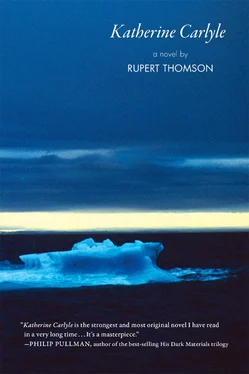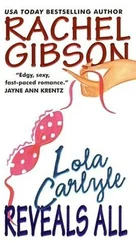My father came to me one spring afternoon, while I was reading on the gold sofa in the living room. He wanted to know what I had done with my mother’s ashes. He seemed gentle, inward-looking, like a bird with its wings folded.
“I told you,” I said. “I scattered them.”
“Would you show me the place?”
We drove to Testaccio with the windows open. It was late afternoon. Warm air filled the car. As we turned right, onto the Ponte Garibaldi, I looked across at him. He glanced at me and smiled.
Once in the cemetery I took him to the cypress tree, its shadow like a spill of ink, darkening the daisy-studded grass. He asked if this was where I had put the ashes. He wanted to be able to imagine it. I had emptied them in a circle round the trunk, I said. I told him about my panic, and about the rain. He asked how I came to choose the tree. It was somewhere she liked to sit, I said. The sense of peace, and life going on just beyond the walls. She said it was like being cut off from the world but still a part of it.
He nodded, then looked away towards the pyramid. “It’s a good spot. I wouldn’t mind being here myself.”
“But it’s illegal.”
“Yes.”
As we left the cemetery, I took his hand. Neither of us spoke. When we reached the car he turned to face me.
“Thank you,” he said.
I wasn’t certain what he was thanking me for — I could think of at least three things — and I didn’t mind not being certain.
When summer arrives at last, with its endless days, its surfeit of light, I will walk in the hills behind the town and out along the shore, and I will search for the twelve types of whitlow grasses, and also for moss campion, its dense pillows scattered over the ground, and Jacob’s ladder, with its shadowy blue flowers and its thin fragrance. I will go fishing on the Isfjord at midnight and catch mackerel as long as my forearm. I will see barnacle geese fly overhead, with their black necks, the air full of the rush of their wings. I will sail to the high needle-shaped rock in Hornsund, known as Bautaen, and to the ice cliffs of Austfonna, the longest glacier front in the northern hemisphere. I will see everything there is to see, know everything there is to know.
You can’t bury people, not out here. Bodies are forced up out of the ground. They surface of their own accord. On the west side of Longyearbyen white crosses cluster at the foot of a ridge but no one has been buried there since 1950. When someone dies in Ugolgrad, the body is flown to Longyearbyen and then on to mainland Norway, or Russia, or Ukraine. The nearest graveyard is probably a thousand kilometers away.
My mother’s speaking, and her voice is really close. She might be talking in my ear, as she used to when she woke me on school days. I feel the fleeting heat of her breath on my cheek. You’re the strong one. You’re the one who wanted to live .
The man’s face looms above my shoulder. He’s using both hands to support himself. Even so, his bulk bears down on my hip bones and my rib cage, crushing me into the floor.
Now Olav. It can be a strength to know when to change your mind . Antlers tangled above a wooden gate, waves breaking in the sky. Stones like plates. A black road unwinding in the headlights, the laughter of new friends.
Here you can just be .
My father sits with his hands over his face, the tips of his fingers thrust into his hair, his head outlined in gold. He’s not in Rome or in Berlin. There are no hotels, no lovers. His hands fall away and he looks straight at me, his eyelids swollen. He has been crying. Not for her, for me.
For me .
The movie is nearly over. Jack Nicholson sprawls on his bed in a flyblown Spanish pensión , his girlfriend gone, the hit men closing in. He’s alive when the camera leaves the room but dead when it returns, his murder discreet, unnoticed, an event that happens in the wings. My attacker bites down on his bottom lip. The smell of vodka and cold sweat. This is the moment when the camera leaves, but I will be unscathed when it returns, without a single scratch on me. I reach out and feel my hand close round one end of the dumbbell. I need to smash the mirror. Step through it, towards my future — all the whirl and glitter of a life … I grip the weight and swing it backwards, as hard as I can. I feel it connect with the side of the man’s head, the tender bone above his ear. He grunts, falls sideways. I rip off the gag and struggle into my clothes.
The broken piano, the poem on the wall.
My father’s tears.
I snatch up the locket and begin to run, along a corridor, down a flight of stairs, then through a half-open door and out into the night. I collide with two men who happen to be passing. One is fair-haired, the other has a beard. The Danes. When they see me, all the laughter drains out of them. Their smiles disappear. The bearded man wraps his coat around my shoulders. His mouth is moving but I don’t understand. Everything’s just noise. Then one or two words get through.
“You’re all right now,” he says. “You’re safe.”
They take me back to the hotel. The bar is darker than before, one tube light where the vodka bottles are, the maroon of the tablecloths almost black. Ivonna stands against the wall, in the shadows, her arms folded. The man with the beard boils the kettle, makes some tea. Ivonna watches him but says nothing. She looks the same as always, except around her eyes, perhaps, where there’s a tightness — confusion, or concern. The other man walks this way and that, one hand in his fair hair. He seems to blame himself. The bearded man is talking to Ivonna.
I sip my tea.
Steam lifts past my face, and I can feel dirt on my hands, dirt from the canteen floor, a gritty layer between the china and my skin. The fair-haired man is still walking up and down, up and down. It’s difficult to bear. I ask him if he has a phone.
He stops, then looks at me. “You need to call someone?”
“Yes,” I say. “I’d like to call my dad.”
I would like to thank the following people, who were a great help to me during the writing of this book: Mariann Albjerg, Christiane Bauermeister, Evgenia Belousova, David Bickerstaff, Ted van Broeckhuysen and the crew of the Noorderlicht , Mick Brown, Elena Bukay, Mary-Ann Dahle, Dara Faramani, Rory Farquhar-Thomson, Rebecca Horn, Lea Iversen, Joanna Kavenna, Eva Koralnik, Anne Marczinczek and the staff of the Kempinski Hotel Bristol in Berlin, Viktorija Mauvik, Olga Maximova, Luca Merlini, Dr. Kaye Mitchell, Francis Pike, Ilka-Carina Rhein, Emanuela Siciliani, Sir Richard Temple, Hunter Thomson, Angelina Voronina, Dr. Maria Vourliotis, and Gray Watson. I would also like to thank David Austen, Robin Farquhar-Thomson, Calvin Mitchell, Jean Norbury, and John and Maria Norbury for their support and encouragement, and everyone at Other Press for being so passionate and so committed. My gratitude and love, as always, to Katharine Norbury and Evie Rae Thomson.












